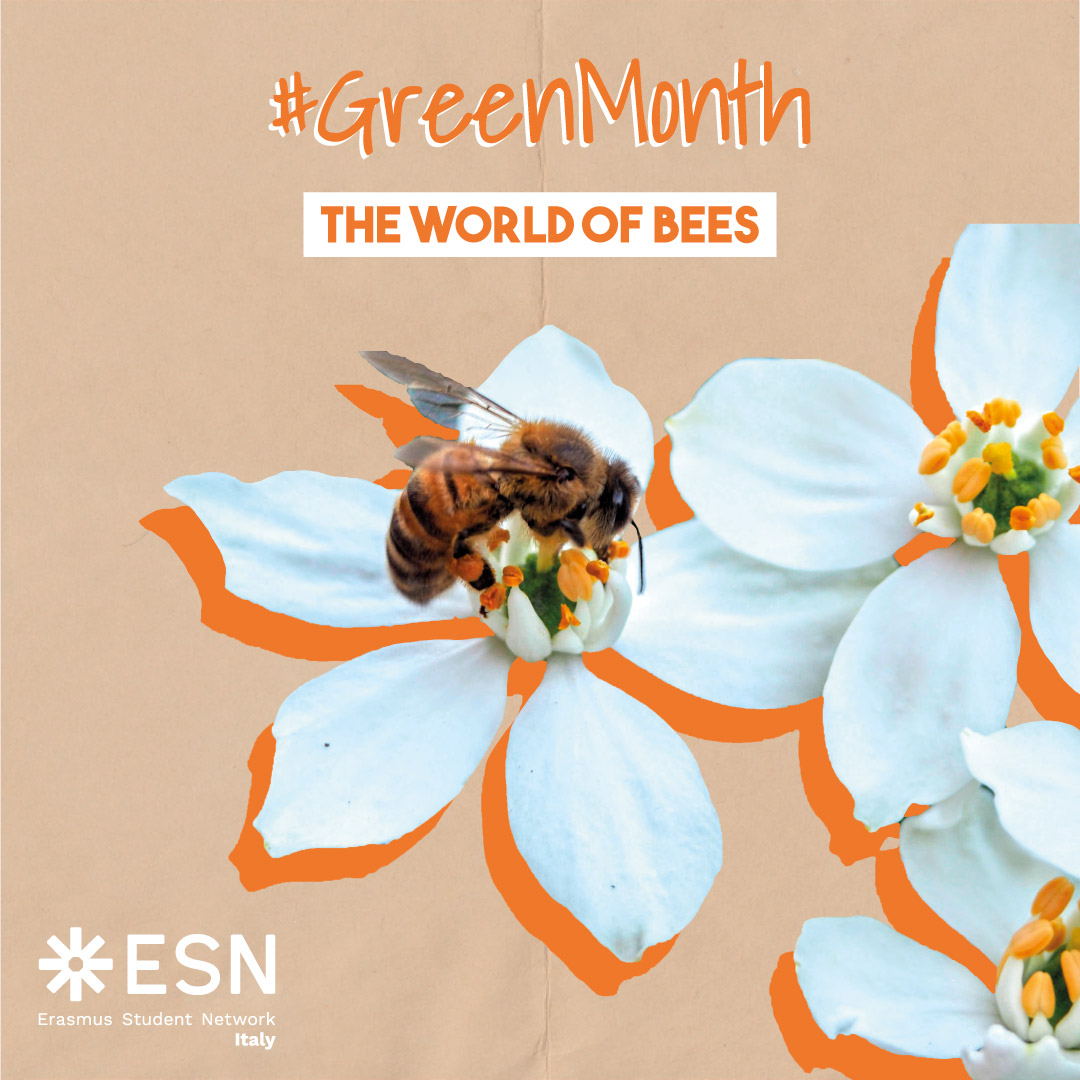
We of the Environmental Sustainability Team have a big dream this year: encourage the Sections to help preserve the existence of a small living being on which our life depends. We are talking about bees, to which May 20 is dedicated worldwide.
The Apis mellifera, our domestic bee, is an insect belonging to the order of the Hymenoptera, and it delights, like other species, in pollinating flowers. Why do they do it? As Maya the Bee taught us, bees flit from flower to flower to collect nectar and pollen, useful for their nutrition: this activity is called foraging. Attracted by the color and smell of flowers and the delicious taste of nectar, bees lay down on the flower and dirty their hairy body with pollen. Through careful movements, some small balls of pollen agglomerated with nectar or honey will be formed and then carried in the "corbiculae" of their legs. The pollination activity of bees is essential for our diet: bees pollinate up to 1.2 million flowers a year and 80% of the food we eat every day depends on them. As the song says "to make fruit, it takes a flower", alright, but without bees or other pollinating insects, such as bumblebees, butterflies, flies, etc., there would be no pollination, and therefore the flower ovule would not be fertilized and fruit would not grow. Thanks to bees, we can have on our tables 106 types of fruit and vegetables, essential for a healthy and sustainable diet.
The world of bees is also fascinating for their typical social character. The beehive is organized as a real society, in which there are three castes: the queen, workers and drones, each with its own characteristic role on which the equilibrium of the beehive depends. First of all the queen bee, the "mother" of the beehive that spawns and guarantees the cohesion of the colony. It is bigger than the other bees, it grows inside the queen cell and is fed royal jelly. It can lay up to 2000 eggs per day! Then the workers, smaller in size and play different roles during their existence according to the needs of the beehive. They can dedicate themselves to cleaning (cell cleaning bees), to the defense (guardian bees) and ventilation of the beehive (fanning bees), to feeding the queen bee and larvae with honey, pollen and royal jelly (nurse bees and queen attendants), to building honeycombs, the "little houses" of bees (wax production bees), to the elimination of dead bees (mortuary bees), to the conservation of pollen and nectar (pollen packing bees), and to the collection of pollen, nectar, propolis and water (foraging bees). Finally, the drones, the male of the bee, with a stocky body and with no sting, in charge of mating with the queen bee, of the production of heat and the distribution of food.
Bees are excellent environmental bioindicators: their presence or absence in a given ecosystem allows an initial evaluation of its health state. Unfortunately, in recent years there has been a decline in the population of these little creatures, put at risk by excessive pollution, climate change and uncontrolled anthropogenic activity. In Europe, a loss of 30-50% of the bee population has been estimated in the past few years. An important fact: the health of ecosystems and food security are seriously endangered!
Respecting bees and supporting the realities that deal with sustainable apiculture are the two values that we of the team would like to convey to everyone. For this reason, we promote the adoption of a beehive through the 3Bee project, an interesting reality that supports Italian beekeeping and helps defend bees from extinction.
The Environmental Sustainability Team

Follow us